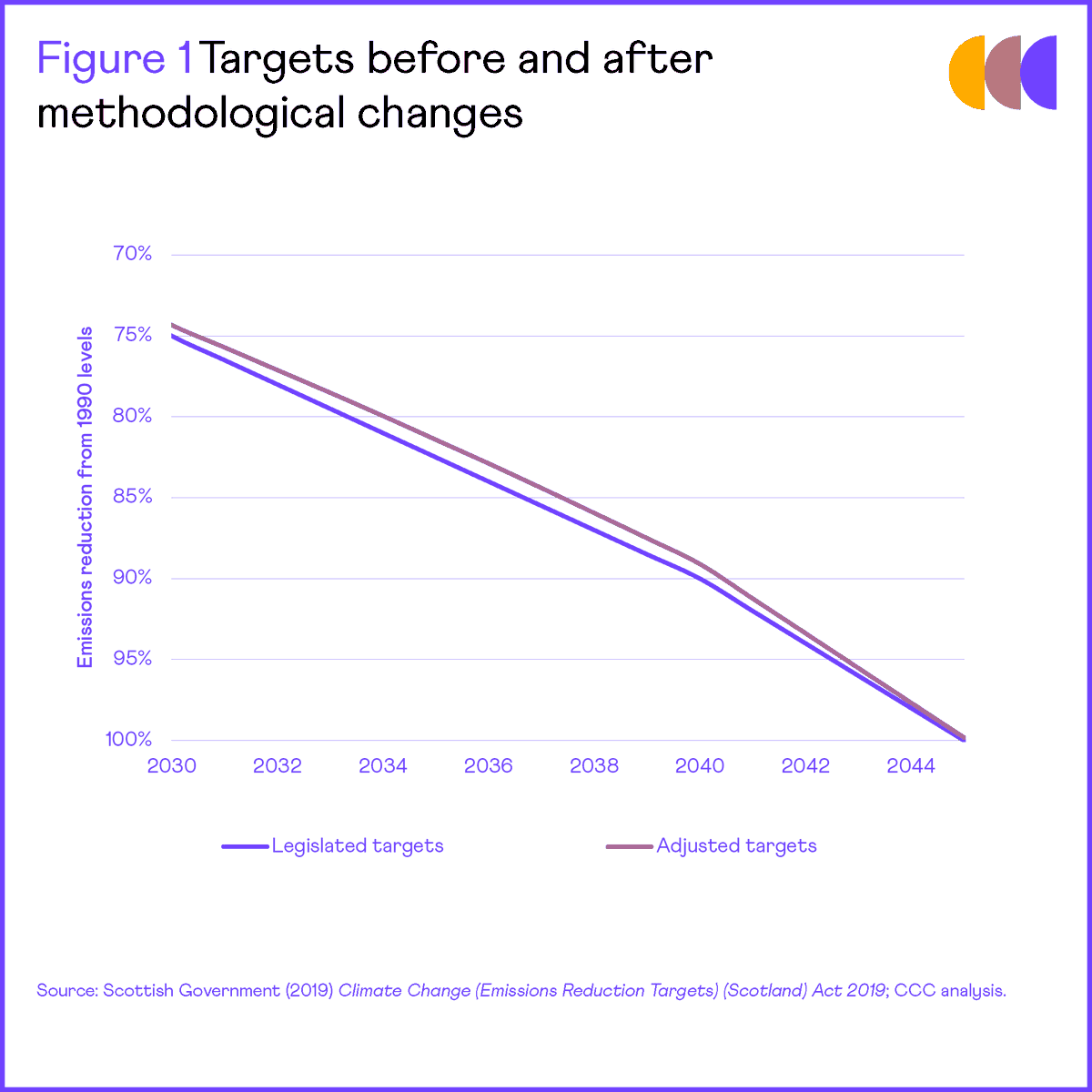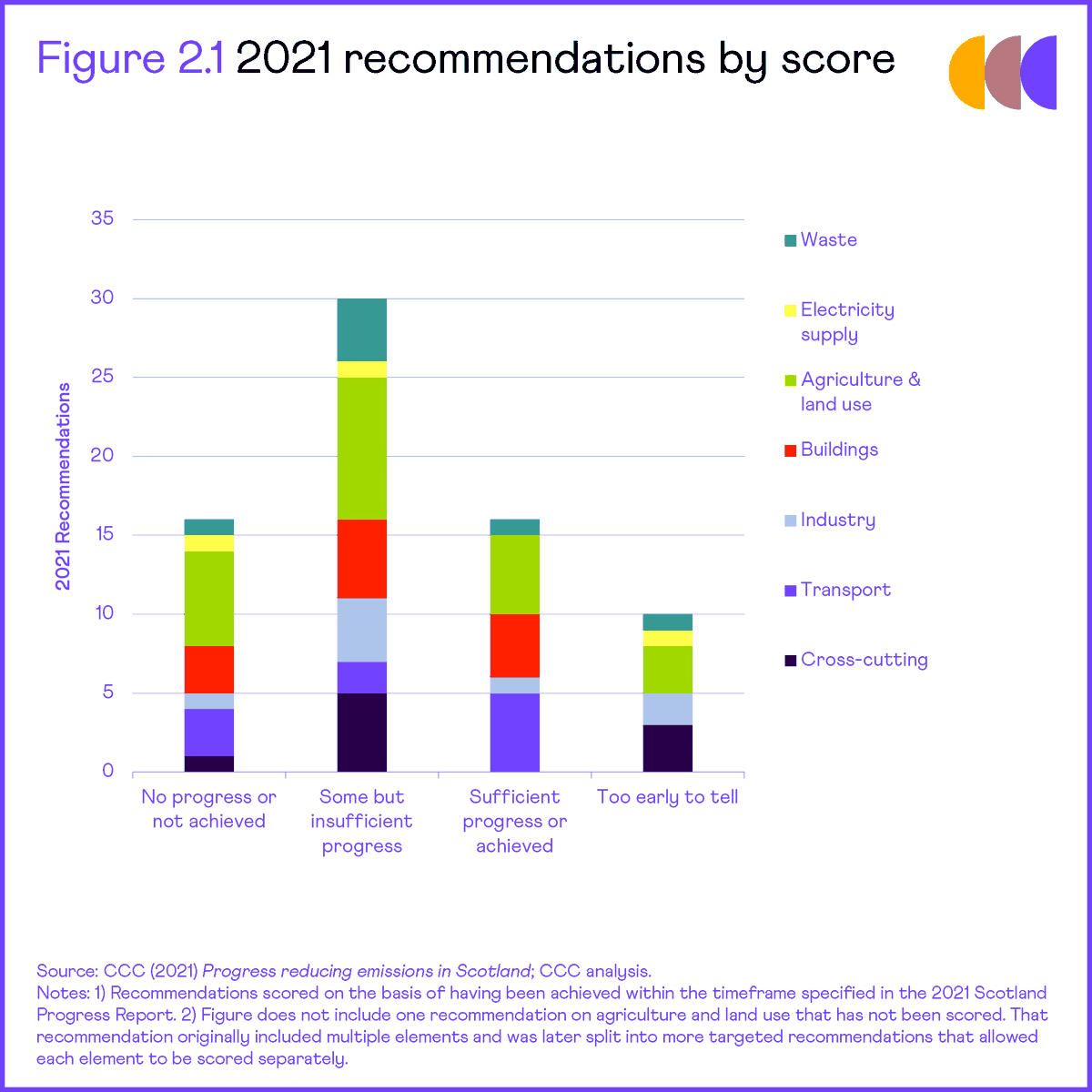Scotland’s climate targets ‘in danger of becoming meaningless’

The Scottish Government lacks a clear delivery plan and has not offered a coherent explanation for how its policies will achieve Scotland’s bold emissions reduction targets, the latest assessment of Scotland’s progress by the Climate Change Committee has concluded.
The Climate Change Committee has conducted a methodological review of the Scottish Climate Targets and assessed progress in cutting Scottish greenhouse gas emissions.
In its 2022 Report to Parliament, the Committee praised the Scottish Parliament for its commitment to an “extraordinary ambition” to decarbonise its economy, with a “welcome focus” on a fair and just transition.
However, the Committee said that ambition should be applauded only if targets are achieved, adding that the integrity of the Scottish climate framework is “now at risk”.
Lord Deben, chairman of the Climate Change Committee, said: “In 2019, the Scottish Parliament committed the country to some of the most stretching climate goals in the world, but they are increasingly at risk without real progress towards the milestones that Scottish Ministers have previously laid out. One year ago, I called for more clarity and transparency on Scottish climate policy and delivery. That plea remains unanswered.”
Between 2019 and 2020 emissions fell by 12% – half of 1990 levels for the first time. But the fall in 2020 is only a temporary effect, largely due to travel restrictions in the pandemic. Evidence from across the UK is that Scottish emissions will rebound in 2021. Underlying progress in reducing emissions in Scotland has largely stalled in recent years. Since the Scottish Climate Change Act became law in 2009, the Scottish Government has failed to achieve 7 of the 11 legal targets.
Scotland’s lead in decarbonising over the rest of the UK has now been lost. Progress is now broadly the same as the UK as a whole. Two years after the publication of the Climate Change Plan update, we do not see evidence of sufficient action to meet the Scottish Parliament’s ambition.

There are now glaring gaps in the Scottish Government’s climate plan and particular concerns about the achievement of the 2030 goal to cut emissions by 75%.
- Plans to decarbonise transport in Scotland are falling behind other parts of the UK. Sales of electric cars are now behind those of England, despite Scotland’s greater ambition to decarbonise transport. The Scottish Government has so far been unwilling to consider measures to recover the shortfall, such as restrictions on aviation growth.
- Scotland’s 2030 goal rests on rapid action to decarbonise buildings. Despite new public funding in this area, policies are still wholly inadequate to deliver the scale of low-carbon heat and energy efficiency improvements required.
- Agriculture and land. Detail on low-carbon agriculture policy following Scotland’s exit from the EU Common Agricultural Policy is needed urgently. It is not clear how the emissions targets set by Scottish Ministers in this area can be delivered in the absence of new policies. On the key issue of restoring Scotland’s peatland carbon stores, restoration rates are less than half of Scotland’s own target of 20,000 hectares per year, which is in turn much less ambitious than the CCC’s recommendation of 45,000 hectares per year by 2022.
For sectors in which policy is significantly devolved to Scotland (e.g. transport, land use and waste), indicators show that progress towards meeting the Scottish Government’s milestones is too slow. Policies and plans are not yet sufficient to speed things up to the required rate.
Closer cooperation with the UK Government is required in other areas, particularly to guide the decarbonisation of Scottish industry and develop new industries to remove greenhouse gases from the atmosphere. There is little evidence of cooperative policy planning, which is now undermining the achievement of Scotland’s more ambitious short-term goals.
Within Scotland, better collaboration is also required between Scottish Government and local authorities. Many local authorities have declared climate emergencies and named ambitious Net Zero goals, but they need better support from Scottish Government, not least in securing the funding to drive policy. Collaboration in all these areas is key for realising both Scotland’s ambitions and the full potential of Scotland’s contribution to the UK’s Net Zero target.
Scotland must build on the positive areas of progress, including planning reform. The draft fourth National Planning Framework (NPF4) was an important step towards embedding Net Zero in the planning process and setting the direction of movement for major projects in Scotland, but its success will be determined by its implementation and enforcement, which remains unclear for now.

Responding to the report, Morag Watson, director of policy at Scottish Renewables, said: “The Climate Change Committee is right to highlight the need to accelerate our transition to net-zero and for The Scottish Government to put in place delivery plans to do that.
“In particular, this progress report emphasises the need to move more quickly to develop an electricity network which is capable of transporting the power which our industry produces, and for monitoring of decisions made under the new National Planning Framework 4 to ensure they align with sustainability goals.
“The renewable energy industry is already providing most of Scotland’s electricity consumption and can do so much more to help the country meet net-zero, but to do so we must ensure that the right conditions are put in place as soon as possible.”
Net zero secretary Michael Matheson said the Committee’s advice is a “timely reminder of the scale of the challenge faced by government, industry and civil society if we are to reduce Scotland’s emissions and play our role in limiting global warming”.
He added: “We fully acknowledge it will require truly transformational action across our society and economy, driven by government, as part of a national effort to tackle the climate emergency. Progress has been made – Scotland is already more than half way to net zero – but we are now entering the most challenging part of the journey to date, with a need to halve our emissions again within the next eight years.
“Significant steps have been taken in recent years to put in place the policy frameworks that will drive action and change on the ground. For example, plans to spend at least £1.8 billion over this parliament to decarbonise homes and buildings, facilitating the transition to renewable and low-carbon sources of energy, free bus travel for under 22s and an updated national planning framework that promotes developments that reduce carbon emissions. The action we are taking now will deliver significant emissions reductions in years to come.
“However, in many areas progress on reducing emissions in Scotland is dependent on decisions taken by the UK Government. They have not gone far enough, fast enough. The Scottish Government will continue to push the UK Government to deliver progress on areas that are currently reserved – such as the development of negative emissions technologies, energy regulation, and reviewing the way transport is taxed – as well as ensuring the journey to net zero is prioritised in four-nations discussions.
“We know that Scotland’s targets are among the most stretching in the world, but it is right to be continually ambitious on an issue that will affect our future generations. We are actively considering the CCC’s advice alongside work we have already started to prepare a new, detailed Climate Change Plan covering the period to 2040.”









